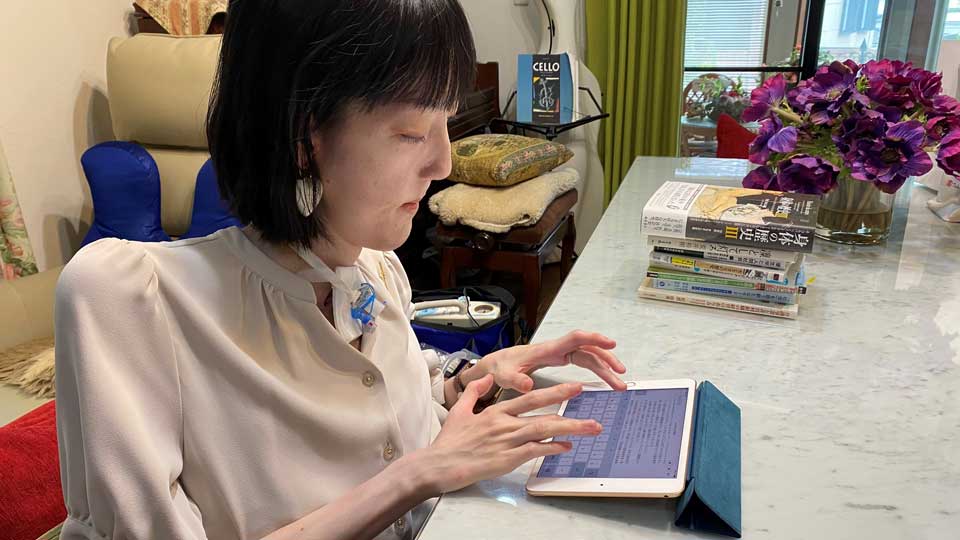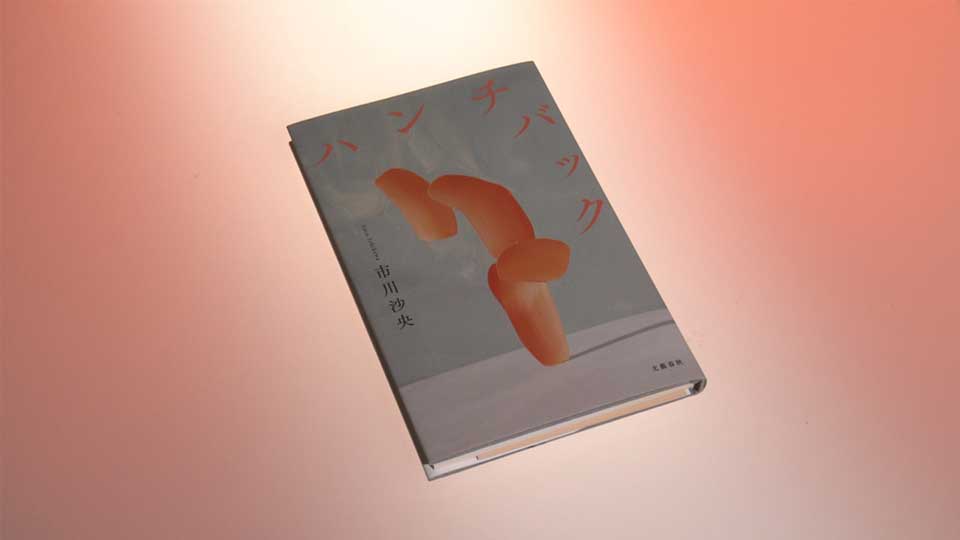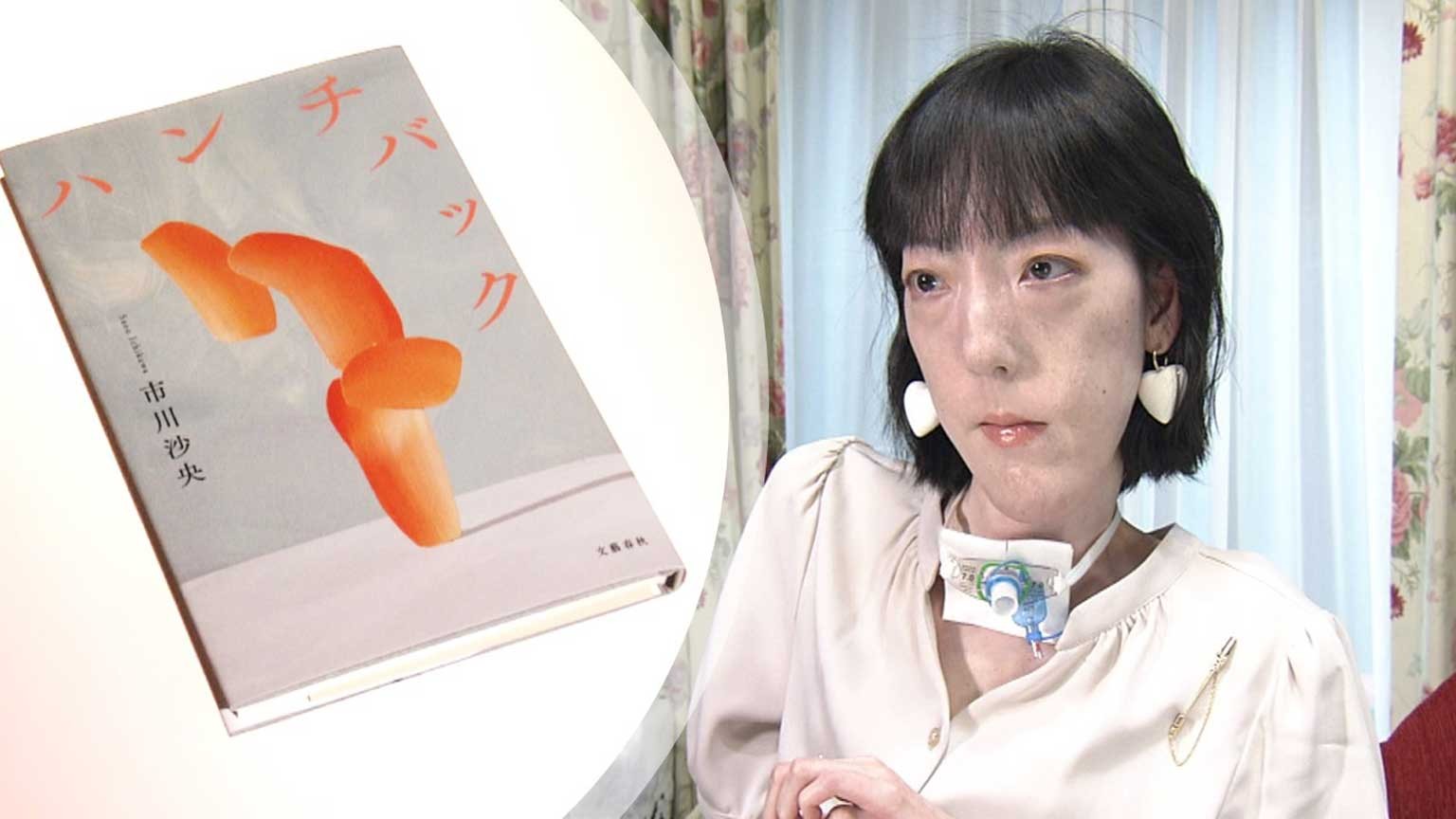Ichikawa, 43, tells NHK that she has long felt that writing was the only career option for someone like herself. She has congenital myopathy, an intractable disease characterized by muscular weakness, and uses an electric wheelchair and respirator.
She says at the age of 20 she "realized I can only become a novelist" given how difficult it was for her to go outside. She has been writing ever since.
The protagonist of "Hunchback," Izawa Shaka, is a woman with the same disabilities as Ichikawa. The novel tells her story with humor and a sense of irony.

Challenging traditional reading norms
Izawa lives in a group home bequeathed by her wealthy parents, and is writing a thesis for a university's distance learning course. Ichikawa says the novel reflects her own anger.
"To write my graduation thesis for a correspondence course at Waseda University, I conducted extensive research on the history of people with disabilities and discrimination against them," she says. "As I delved deeper, I found an anger beginning to emerge inside myself.
"My frustration with the lack of progress in Japan's accessible reading environment was the primary motivation for my writing. I believe it is a significant issue that novels and academic books often lack consideration for disabled readers.
"Perhaps people do not think people with severe disabilities read books or become scholars," she continues. "In order to draw attention to that possibility, I needed to reflect myself onto the character Izawa, who also writes a thesis, and engage in 'self-representation' to advocate for individuals in similar situations."

References to "accessible reading environments" are littered throughout the book.
"I hated paper books. I hated the machismo of the traditional reading culture, which requires five physical abilities ― the ability to see, the ability to hold a book, the ability to turn pages, the ability to maintain a reading posture and the ability to freely go to bookstores to buy books." ― From "Hunchback"
Ichikawa's commentary on what she terms the "privilege of able-bodied individuals" has prompted lively discussion online. "I didn't intend for that to strike such a chord, but I'm really glad that it resonated with many readers," she says.
Public perception
Ichikawa is also concerned about how society views disabled people.
"In recent years, caregivers and siblings of disabled children, who support individuals with disabilities, are getting a lot of attention," she notes.
"While it's undoubtedly a positive and important trend, I have concerns that disabled individuals who are recipients of support might be demonized and turned into monsters in the public consciousness.
"That's because humans tend to empathize with those who are similar to themselves. Therefore, I believe it's necessary for disabled individuals themselves to speak up proactively, not as objects but as subjects, so the public can intuitively understand that disabled individuals are also human beings."

Making it mainstream
Ichikawa has been a serious writer ― and reader ― for over two decades. But she says she still hasn't found any literature where "severely disabled individuals take center stage."
She pledges to continue creating "mainstream" works that do just that.
"In novels, anime, manga, movies, and dramas, there are certainly some famous works with protagonists who are severely disabled individuals.
"For example, the protagonist in the anime 'Fullmetal Alchemist' lacks a leg and an arm. But it's not created by someone who has the same disabilities," Ichikawa explains.
"I just feel that it's odd not having authors with disabilities at a time when we have three severely disabled individuals in the parliament."
"I have a fixation on the concept of 'mainstream'... I want to write stories that can reach a broader audience in a more popular form," Ichikawa says.
"I think "Hunchback" doesn't rely on complex metaphors or allegories, and it's a reasonably comprehensible novel. If people pick it up, they will catch a glimpse of 'diversity as existence', not merely as a flat topic."

